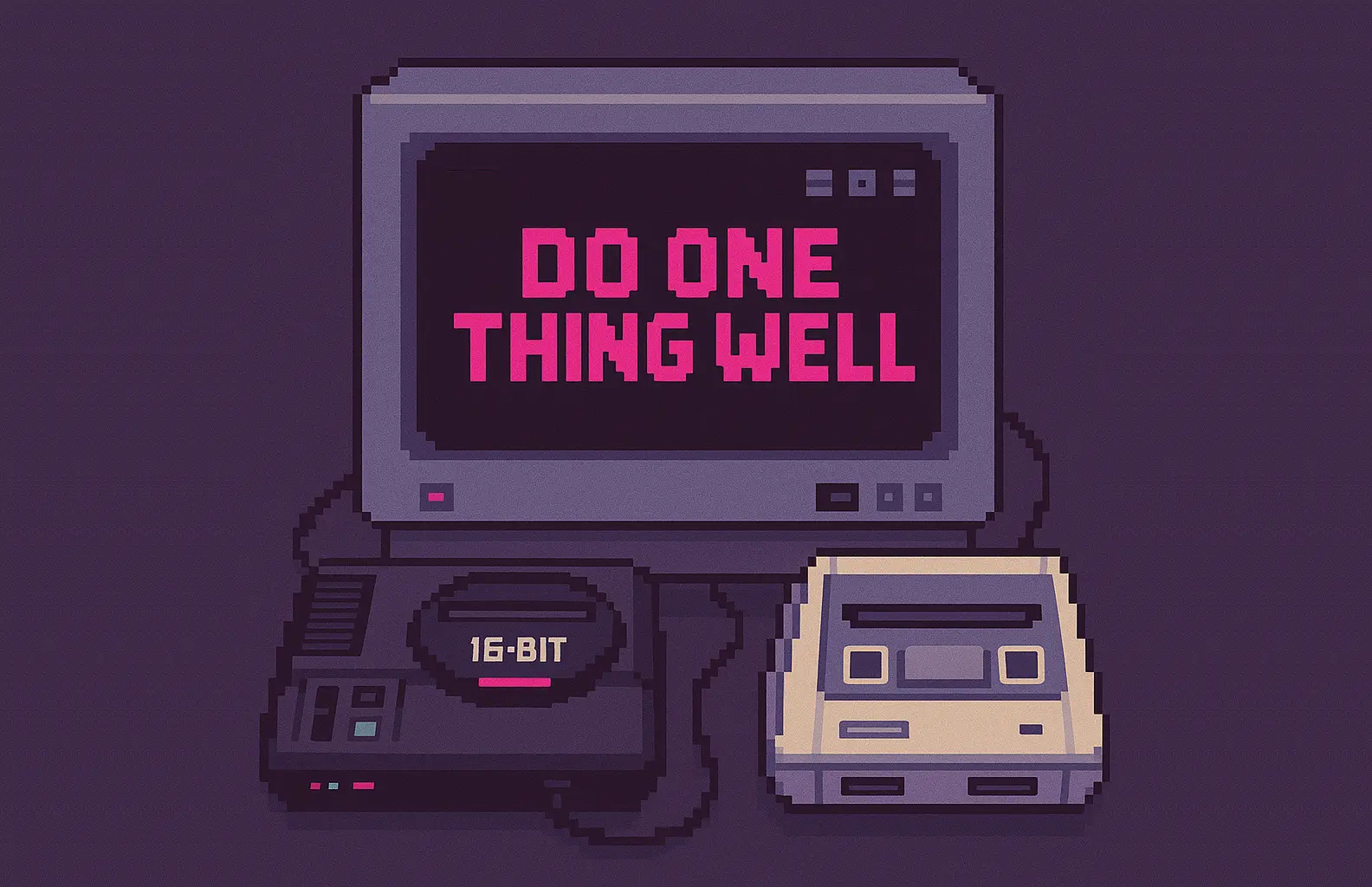
A Lesson from Early Video Games
Early video games weren’t made for everyone. Some people loved them. Some didn’t. But they had one purpose, not a million. No integration with third-party systems. No logins. No firmware updates. No microtransactions. No data collection. You bought it, you owned it. And for the most part, cartridge-based games were resilient—many still work today.
A Lesson from Video Creators
Why do video content creators succeed? Because you can’t replicate them. You either like them or you don’t. And if you do, you support them.
Most creators focus on what works: unboxings, top 10s, reaction videos… but all in their own voice and their own space. One of our favorites, The Primeagen, sticks to dev-related content. (Shout out to Prime.)
A Lesson from Your Texas Instruments Calculator
Yeahhh, I went there. Whether you had the fancy scientific calculator or the crappy blue one, you remember the feeling:
You turned it on.
It worked.
Every time.
Reliable, single-purpose tech that stood the test of time.
A Lesson from Browser Extensions
My favorite browser extensions do one thing:
- Take a full-page screenshot.
- Manage passwords.
- Detect tech on websites.
No fluff. No bloat. Just utility.
A Lesson from Experience
I’ve learned this lesson the hard way.
Over 10+ years of building stuff for the web, I’ve seen the same mistake repeated: scope creep. You get a few signups and start dreaming big. "If I just add X, then I can charge for Y..." Months go by. You ship a bloated app. And nobody shows up.
Small and Quirky Wins
I’ve seen some of the best Vibe-coded apps do just one thing—but do it really well. Maybe they make people laugh. Maybe it’s a lo-fi snake game with Nokia vibes. Doesn’t matter. What matters is that they provide instant value.
People are tired of:
“Do you like my pitch? Cool. Now log in, pay me, and maybe I’ll show you something.”
This is the perfect time to experiment, ship fast, and build weird single-purpose experiences.
TL;DR
Modern software (especially web software) isn’t like this anymore.
What one thing does LinkedIn do well? What about Facebook?
Exactly.
They do everything, but nothing particularly great—except maybe giving you a place to post memes.
(Okay, fair.)
But we can do better.